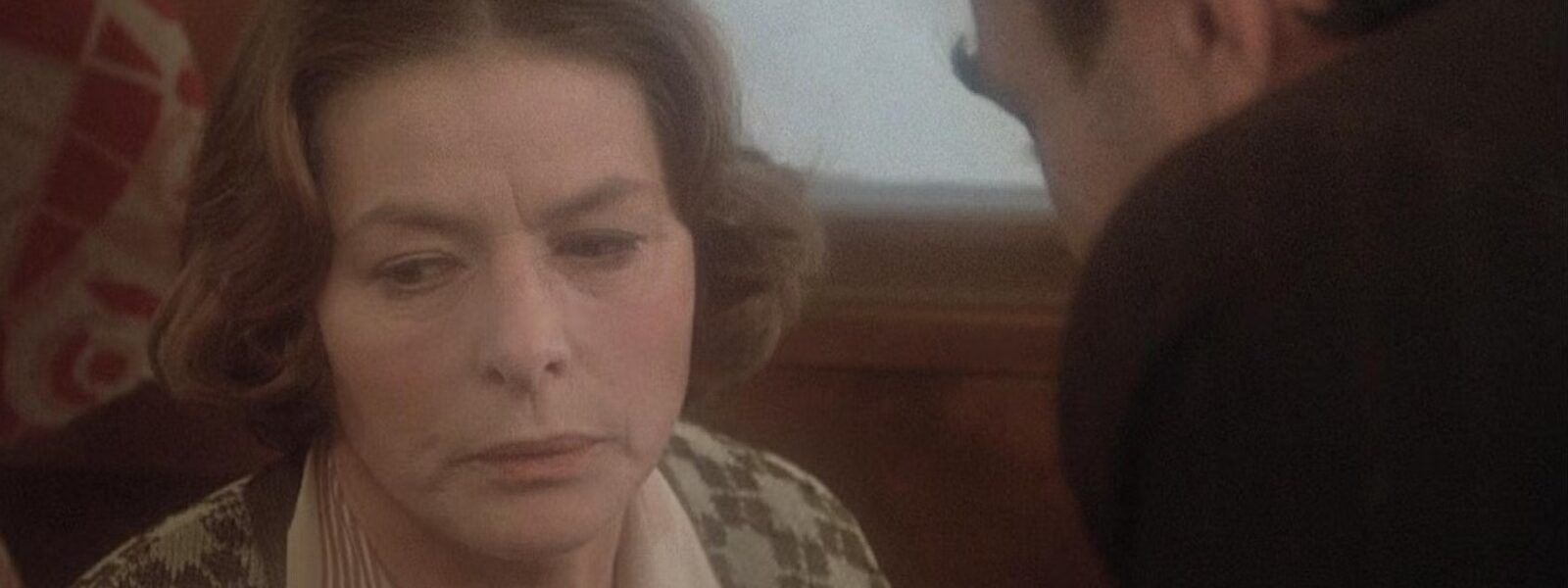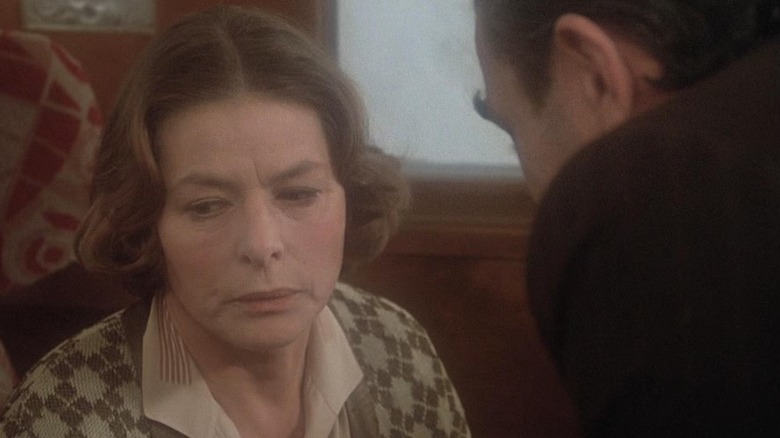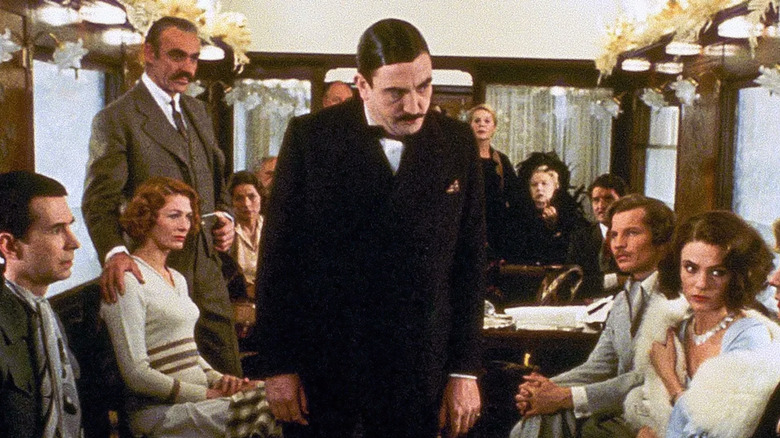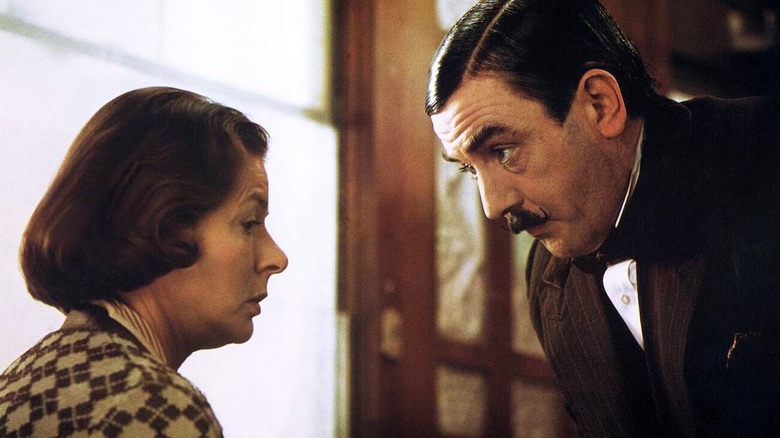Among the most legendary actresses of all time, Ingrid Bergman is looming. Bergman’s career has spread over the decades, and she was able to work with some of the greatest filmmakers of all time, from Alfred Hitchcock to Michael Curtiz in Leo McCarey. And in addition, many films in his filmography are largely, and correctly, considered among the best films in English ever made, from “Bells of St. Mary’s” and “Gaslight” to one of the most emblematic American and global films of all time “. Bergman, not surprising, was well rewarded for his immense talent and his acting crafts, with three Oscars (as well as being nominated four others times). Almost perfect score On Rotten Tomatoes and left with the best film Oscar, says something about the quality it was and how each of its performance could not obtain the gold statuette. (If you are curious, you can read Our ranking of his best films here.)
Advertisement
The last time she won an Oscar, Bergman had aged in her golden years and played less accustomed roles to head women as much as support players. The year took place in 1974, in which Francis Ford Coppola reigned with “The Godfather, Part II” and “The Conversation”. But Bergman won his latest Oscar, and her only best support actress, for a different film, a kind of return: a mystery film with a large set of interim legends, adapted from a story by one of the most famous authors of all time and featuring a most familiar detective. The film was “Murder on the Orient Express”, with Albert Finney in the role of Hercule Poirot, the detective created by Agatha Christie.
Although Bergman won his last Oscar for murder on the East Express, she was one of the many acts as an actor in the film
If you know the Remake 2017 From the same name, directed by and with Kenneth Branagh, you can have a familiarity with the plot of “Murder on the Orient Express”. It was winter 1935, and Poirot was on the eponymous train, traveling from Istanbul to London, among a vast coterie of potentially suspect types who all become suspect of murder when the American businessman Samuel Ratchett (Richard Widmark) was found dead after being stabbed a dozen times. Throughout the train to London, it is up to Poirot to understand Whodunit and why, both to ensure that a murderer is brought to justice and avoid any other attack. But solving the murder is a bigger challenge than expected, even for the legendary Poirot, because it becomes more and more clear that many people on the train had links with the dead and might have wanted to see it deceased.
Advertisement
Among the other passengers, there is a colonel of the British army (Sean Connery), an English governess (Vanessa Redgrave), an American worldly (Lauren Bacall), a Hungarian count and his wife (Michael York and Jacqueline Bisset), and more. If these names are not impressive enough, the casting is also joined by Martin Balsam, John Gielgud, Anthony Perkins and Wendy Hiller, among a few others. With Sidney Lumet of “12 Angry Men” and the future winner of the best film “Network” behind the camera as a director, it is not surprising that “Murder On The Orient Express” was a great success with the criticisms and the public of the time, becoming the eleventh most profitable film of the year in the United States. And the film received six Oscar nominations that year, including one for Finney as the best actor. But that only won a victory: for Bergman, who played the Swedish missionary Greta Ohlsson.
Advertisement
The fact that Bergman distinguished himself among his peers in “Murder on the Orient Express” is as much a comment on his status as a film icon as in his tender and silent performance. (Anything else, it is not as if it were the only icon in the film, and not even the only woman to have shared romantic scenes in the 1940s with Humphrey Bogart; Lauren Bacall also had this honor.) Ohlsson, as almost everyone that Poirot meets, covers the truth about herself and his link with the dead and the child who was murdered under his watch. The story is notable for his final turn involving exactly who committed the murder (and the fact that it is more than one person), but Bergman stands out because of his emotional but not histrionic performance.
The last victory of the Bergman Oscars is as much a comment on his emblematic status as on his work in the film
How much victory that Ingrid Bergman had in 1974 is because his performance was really the best, as opposed to the voters of the Oscars who wish to celebrate the legend once again? Although Bergman was nominated a few years later in the category of best actress for her work in “Autumn Sonata” by Ingmar Bergman, she was already hitting her sixties (and would only appear in some additional films anyway). Admittedly, it is not the only time an actor legend has a Oscar as much for his status in the industry as for the specific film. (A good example of that would be the first victory for the best actor of Al Pacino for “Scent of a Woman”. It is a memorable role but not even close to his best, and certainly not his best until this moment of his career.) “Blazing Saddles.” This does not mean that Bergman is not very good in “Murder on the Orient Express”, but if she had not won for the role, it could have gone to another talented actress (and younger).
Advertisement
But Ingrid Bergman won this third Oscar and managed to do it as one of the only two actors nominated in the enormous cast of the adaptation of Sidney Lumet of “Murder on the Orient Express”. Although it was not his most famous film, he managed to endure thanks in part to the aforementioned remake of Kenneth Branagh, as well as to the novels of Agatha Christie featuring Hercules Poirot continue to be precious by new generations of mysteries. If nothing else, Bergman winning the third Oscar is a beautiful cap of a remarkable career which allowed him to celebrate by critics, the public and Hollywood himself.






